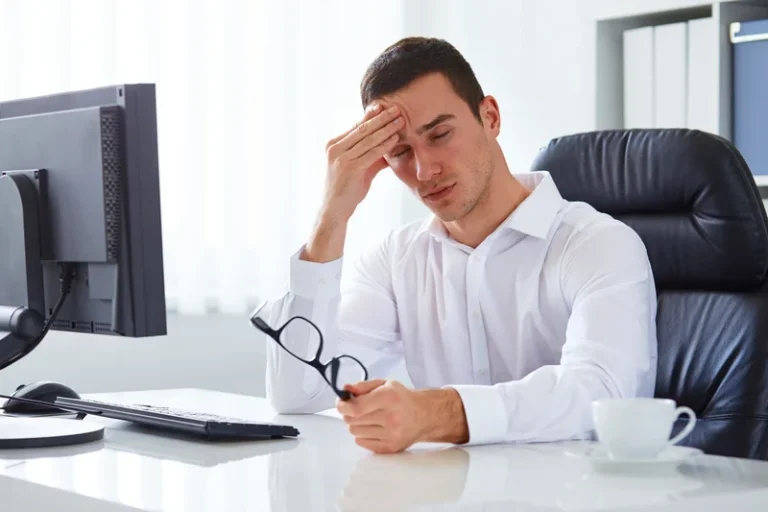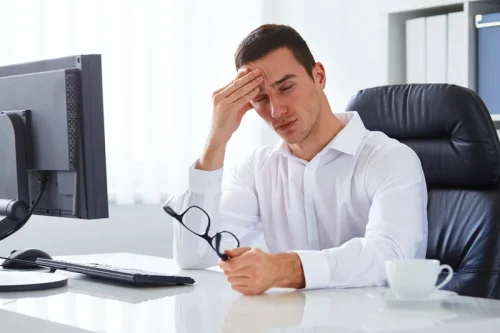
A night of drinking can bring up feelings of anxiety or jitteriness, even if you’re not diagnosed with an anxiety disorder. Alcohol affects the levels of serotonin and other chemicals in your brain, so it affects your body and mind in various ways the next day. Initially, alcohol can induce feelings of relaxation and euphoria by increasing the activity of GABA, which has a calming effect on the brain. This can temporarily alleviate anxiety symptoms and create a sense of relief. However, as alcohol is metabolized and its effects wear off, the brain attempts to compensate for the increase in GABA activity by decreasing its natural production.
Who is More at Risk? Identifying Risk Factors for Alcohol-Induced Panic Attacks
Many people experience hangover anxiety, sometimes called “hangxiety.” Let’s explore why this happens. It can involve a racing heart, trouble breathing, dizziness, and even feeling like you’re losing control. 😔 These feelings can be especially unsettling when they come on unexpectedly after having a few drinks. Even one drink can interrupt the natural cycles of sleep, causing a nervous or irritable feeling the next morning. Alcohol is a mild anesthesia and will put you in the mood for sleep — at least initially. Later in the sleep stages, alcohol disrupts REM sleep and paralytic sleep, which is when your body rejuvenates itself.
Conditions
- People with anxiety disorders may use alcohol as a coping mechanism, which could lead to alcohol use disorder (AUD).
- Typically, he offers this in conjunction with supportive therapy, motivational interviewing, and/or cognitive behavioral therapy in 30-minute follow-up visits.
- Anyone can experience anxiety—or “hangxiety”—after drinking, even if you aren’t dealing with alcohol dependence.
- Studies show that 80% of people with a panic disorder who complete a course of CBT are panic-free at the end of treatment.
- Learn about the different types of tests available, their limitations, and the steps to take after self-assessment.
Continue reading to learn about alcohol and anxiety, their interplay for health implications, and recovery treatment. Learn effective strategies to manage the ADHD Wall of Awful and navigate emotional dysregulation. This guide provides practical tips and support for individuals with ADHD and their loved ones. A healthcare professional or mental health expert can help figure out what’s going on and suggest ways to cope. They can provide a proper diagnosis if needed, which can bring clarity and help you find the right treatment options. Establishing a regular sleep schedule and creating a relaxing bedtime routine can significantly impact anxiety levels.
Get Professional Support
- This article explains the links between alcohol and anxiety and how to manage anxiety disorders and AUD in daily life.
- If you or someone you love is experiencing alcohol related anxiety, there are ways to cope.
- Since alcohol can directly trigger panic attacks, these positive habits to help us quit or cut back can help us maintain emotional stability.
- They can provide a proper diagnosis if needed, which can bring clarity and help you find the right treatment options.
In other words, alcohol is not all bad – but it does have the potential to damage your psychological and/or physical health. As you drink alcohol, it acts as a sedative which can make you feel more at ease. This can be dangerously addictive if you have frequent anxious thoughts.

Studies show a high prevalence of anxiety among alcohol-dependent individuals. This relationship creates a alcohol and panic attacks cycle where anxiety fuels drinking, and drinking exacerbates anxiety, potentially leading to both alcohol use disorder and worsening anxiety symptoms. Many people turn to alcohol as a form of self-medication for anxiety symptoms, seeking temporary relief from worry and stress.

What the DSM-5 Says About Addiction
- It does so by binding to GABA receptors in the brain—which helps your body to relax and your mind to feel calm.
- In this case, alcohol can be especially harmful, potentially triggering and exacerbating panic attacks.
- He specialized in treating patients with a history of depression, anxiety, trauma, and substance use disorders.
- All our psychiatrists (and all psychiatrists in general) are medical doctors with additional training in mental health.
- Heavy drinking depletes essential nutrients, potentially intensifying anxiety.
- However, the interplay of alcohol and anxiety is multilayered and the severity of the AUDs depends on the type of anxiety disorder.
Panic attacks can leave us feeling scared, uncomfortable, and vulnerable. When we don’t have healthy ways to manage these feelings, we might turn to alcohol to cope. Yes, abruptly stopping (or reducing) alcohol intake after prolonged use can lead to panic attacks. Yes, alcohol can contribute to mood disorders like depression and bipolar disorder by disrupting neurotransmitter balance and exacerbating symptoms over time. When dealing with health =https://ecosoberhouse.com/ disorders that may be caused or worsened by alcohol use, the first and most essential action to take is reducing or eliminating alcohol intake.

Overall, doctors do not recommend consuming alcohol while using other drugs. Keep reading to learn more about the effects of mixing mushrooms and alcohol. Your partner, parents, children, friends, employer, coworkers, doctor, or therapist might confront you about your drinking Drug rehabilitation habits or your behavior when you drink.
The Long-Term Effects of Alcohol on Anxiety and Panic Attacks
They can prescribe any medication they think can help their patients. In order to find out which medications might be appropriate, they need to conduct a full evaluation. Only a qualified healthcare professional can diagnose an alcohol use disorder or an anxiety disorder. Although it may be tempting to ignore your symptoms, or to self-diagnose, the only way to access the resources you need to recover is by getting a clinical diagnosis. Anyone can experience anxiety—or “hangxiety”—after drinking, even if you aren’t dealing with alcohol dependence. However, if you find yourself frequently experiencing anxiety and regret after drinking, particularly after heavy drinking, it may be a sign of a more serious problem.
